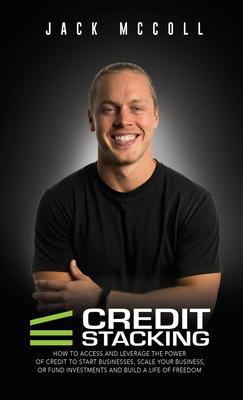What if there was a way to dramatically accelerate financial independence? A way to speed your success up to the point where you can live a life of absolute freedom allowing you to do what you want, when you want, and where you want?
In a country that doesn't teach the fundamentals about building a credit score or how to effectively get access to low interest capital, it can be difficult to know where to turn for actionable advice you can trust. Today, it is easier than ever to get access to hundreds of thousands of dollars at a 0% interest rate. The only thing that restricts an entrepreneur or investor from achieving that result is knowing the unique framework that has worked for thousands of others.
In this book, Jack McColl, the creator of the Credit Stacking framework, breaks down the exact steps that he used to go from zero business cards to getting approved for over $500k in credit in just over 12 months. In April 2020, Jack was approved for his first business credit with only a $5k limit, but in just a matter of months, after he was able to reverse engineer the internal underwriting criteria of the big banks, he was able to get approved for $50k-$100k credit limits per card. Now imagine doing that with six banks bank to back, and beyond.
With such large access to 0% interest capital, Jack has been able to co-found multiple multi-six and seven-figure businesses while he travels full time. The Credit Stacking book is his all-comprehensive guide to building a life of freedom by leveraging 0% interest business credit cards to invest and grow your business with the bank's money. This book includes Jack's personal story of how he was able to learn the secret internal underwriting criteria of lenders and used it to his advantage to get access to such a large amount of 0% interest credit so quickly.
If you are an entrepreneur or investor who is seeking low interest capital, which you can use to start a business, fund a business, or invest with, the Credit Stacking book is a must read. After learning Jack's unique framework, you will never look at access to money the same.
